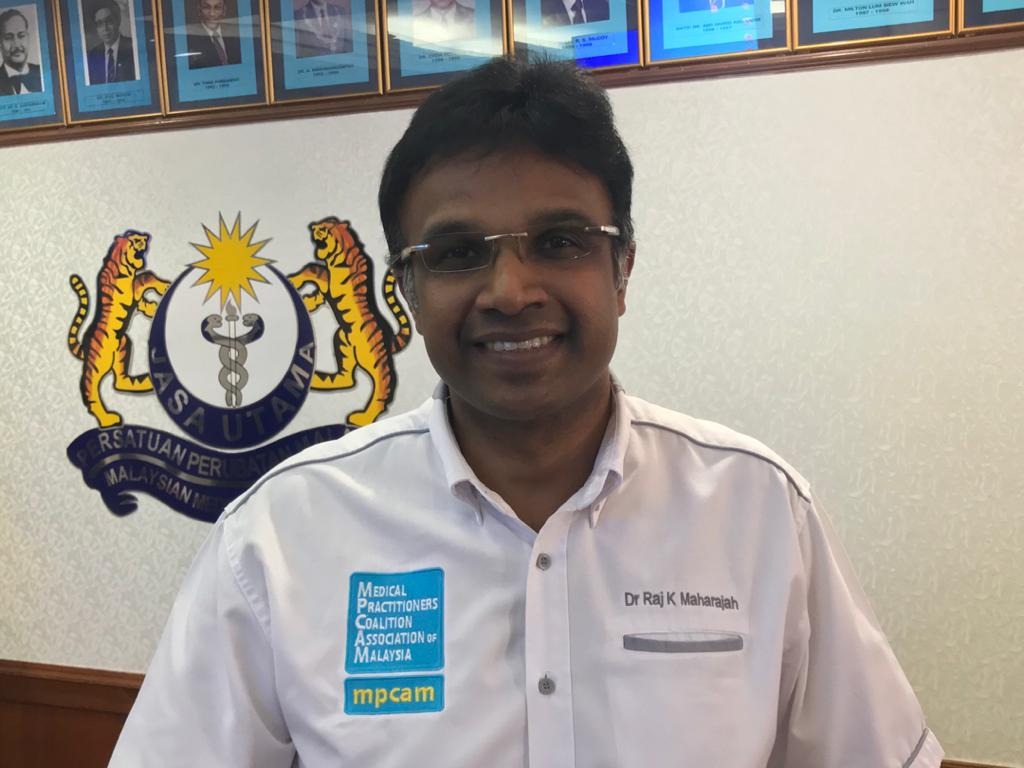KUALA LUMPUR, May 6 — As millions returned to work, doctors groups complained about vague Covid-19 screening guidelines for workers, saying private clinics still haven’t received test kits from the Social Security Organisation (Socso).
Medical Practitioners Coalition Association of Malaysia (MPCAM) president Dr Raj Kumar Maharajah questioned how the Movement Control Order (MCO) was relaxed on May 4 without available rapid serology tests, also known as antibody tests, to screen workers for Covid-19.
He pointed out that antibody tests must be done twice within a week, which means that the earliest workers can get a certificate of fitness is on May 13 if general practitioner (GP) clinics receive the kits today.
“We are getting thousands of calls every day from employers and no one knows what’s happening,” Dr Raj Kumar told CodeBlue yesterday.
“Ministers are making announcements without getting confirmation on issues. On the ground, everyone is anxious — doctors, employers, and employees.
“We want someone to tell us when we will get the kits.”
Dr Raj Kumar also said it was unclear if panel clinics with Socso’s Health Screening Programme (HSP) would be reappointed to do Covid-19 screenings or if they needed to reapply. He also estimated only about half, or 3,500 of GP clinics nationwide, are Socso panel clinics.
“Nobody knows what to do,” he said. “Nothing is clear”.
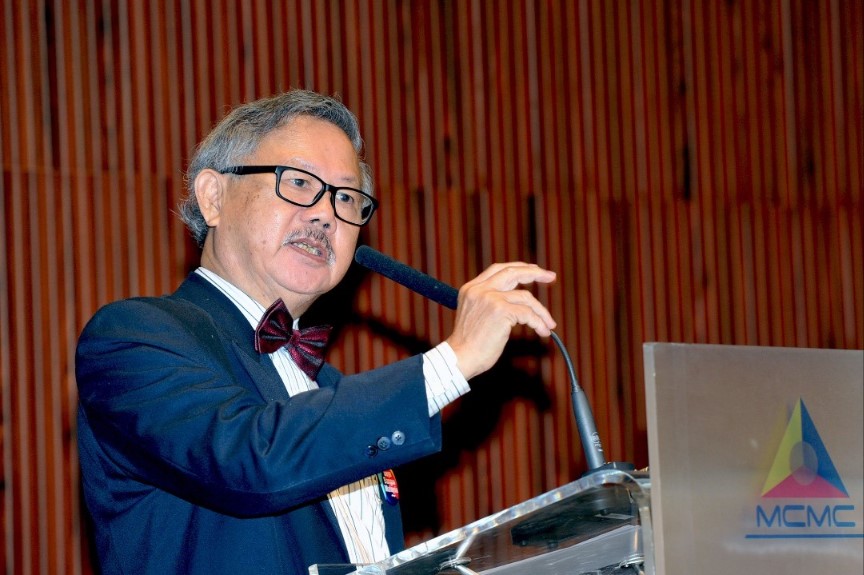
The Federation of Private Medical Practitioners’ Associations, Malaysia (FPMPAM) similarly said its member GPs in the peninsula, Sabah, and Sarawak have yet to receive any test kits from Socso.
Their doctors have also been unable to access Socso’s website for further information on its Program Saringan Prihatin (PSP), receiving no details from the social security fund on the Covid-19 screening programme aside from press statements.
“To our knowledge, there is no readily available stock of approved test kits in the country and the earliest supply is expected only in mid-May. Mass testing cannot be commenced until the test kits are in hand in the clinics,” FPMPAM president Dr Steven Chow told CodeBlue yesterday.
“Many employers who want to start their business have already started calling the clinics, but clearly, this problem is beyond the doctors’ control. The SOP (standard operating procedures) from MOH (Ministry of Health) requires two negative antibody tests for each worker to be done over a period of one week before they can commence work.
“We envisage that this will be a major logistics problem and will be the bottleneck in the restarting of the economy.
“Our recommendation is that workers be examined by their individual company doctor. The examining doctor should be allowed to test using point of care rapid antigen test and if negative, they should be allowed to commence work.”
Socso: Phase 2 Screening In First Week Of May
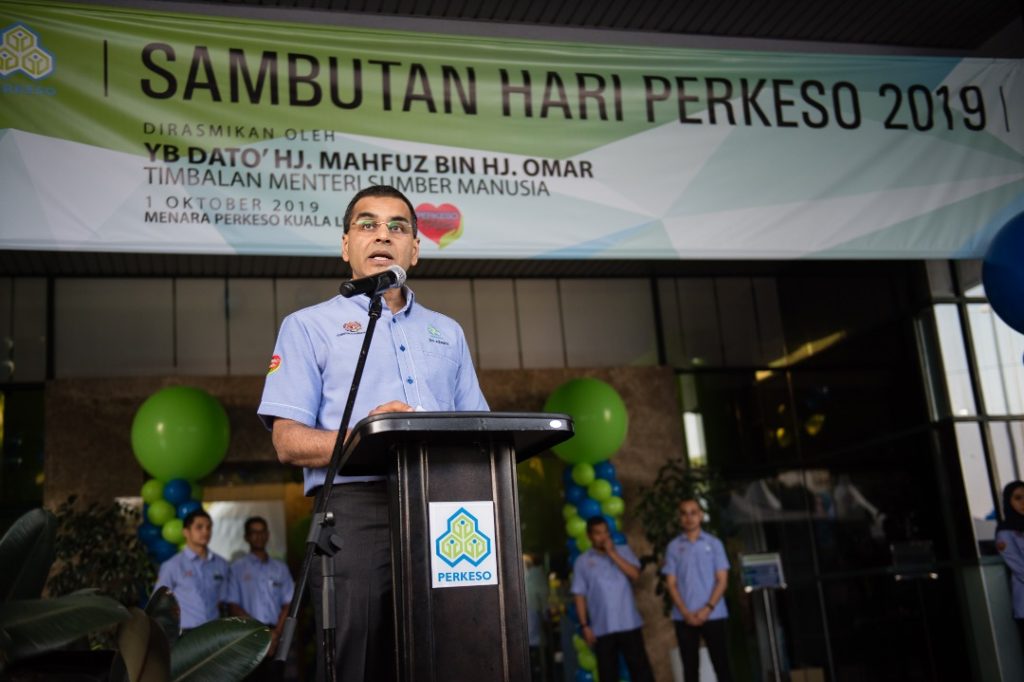
Socso announced last April 27 that its PSP screening programme — which provides free Covid-19 tests to workers, with costs borne by the social security fund — would be done in two phases. The first phase starting April 27 targeted workers (both Malaysian and migrant workers) in high-risk red or yellow Covid-19 areas, as designated by MOH. Screenings would be provided by a service provider appointed by Socso, which it did not name.
Socso CEO Mohammed Azman Aziz Mohammed said in a video last Monday that the first phase of the PSP targeted 300,000 workers. More than 72,000 workers have registered for PSP from April 27 to April 29.
These tests can be done at the workplace, or at a laboratory or clinic, according to the worker’s appointment. Test results will be known within 24 to 48 hours and are confidential, available only to the worker, the service provider, and Socso. Socso did not state what kind of tests were done under Phase 1 of the PSP, although the Malaysian Medical Association (MMA) told CodeBlue previously that the gold-standard RT-PCR tests would be conducted on workers from high-risk areas in Phase 1 of the PSP.
Mohammed Azman also said Phase 2 of the PSP would start in the first week of May, adding that those who were previously tested under Phase 1 do not have to be retested. According to MMA, Socso would procure rapid antibody tests and pay GP clinics RM60 to screen workers for Covid-19 during the second phase of the PSP.
Initially, the Ministry of International Trade and Industry (MITI) announced that workers approved to operate during the fourth Movement Control Order (MCO) period from April 29 to May 12 must be screened for Covid-19. Then Prime Minister Muhyiddin Yassin announced on May 1 that the economy would be reopened on May 4, abruptly easing nationwide lockdown measures under the new Conditional Movement Control Order (CMCO) from May 4 to May 12. A National Security Council (NSC) guidance for offices released on May 1 stated that companies would pay for workers’ health screenings if needed.
Senior Defence Minister Ismail Sabri Yaakob said Monday that all migrant workers would be required to be tested for Covid-19. He clarified yesterday that construction workers from Kuala Lumpur and Selangor would be screened first using swab tests, with testing costs borne by Socso, as more than 60 per cent of foreign workers are contributors to the social security fund.
Another Socso video posted on April 29 said Phase 2 screenings would be conducted by PSP panel clinics, with the type of tests depending on the suitability and equipment provided by Socso. Employers or workers, be they Malaysian employees or migrant workers, must register on the PSP portal with the worker’s identity card number or social security number for foreign workers; employers’ Socso number; and the reference number of a letter of approval from MITI. It is unclear if MITI’s letter of approval is still needed to do Covid-19 screenings during the CMCO, as most businesses have been permitted to resume their full operations.
Private Lab Capacity For PCR Tests About 9,000 Tests Daily
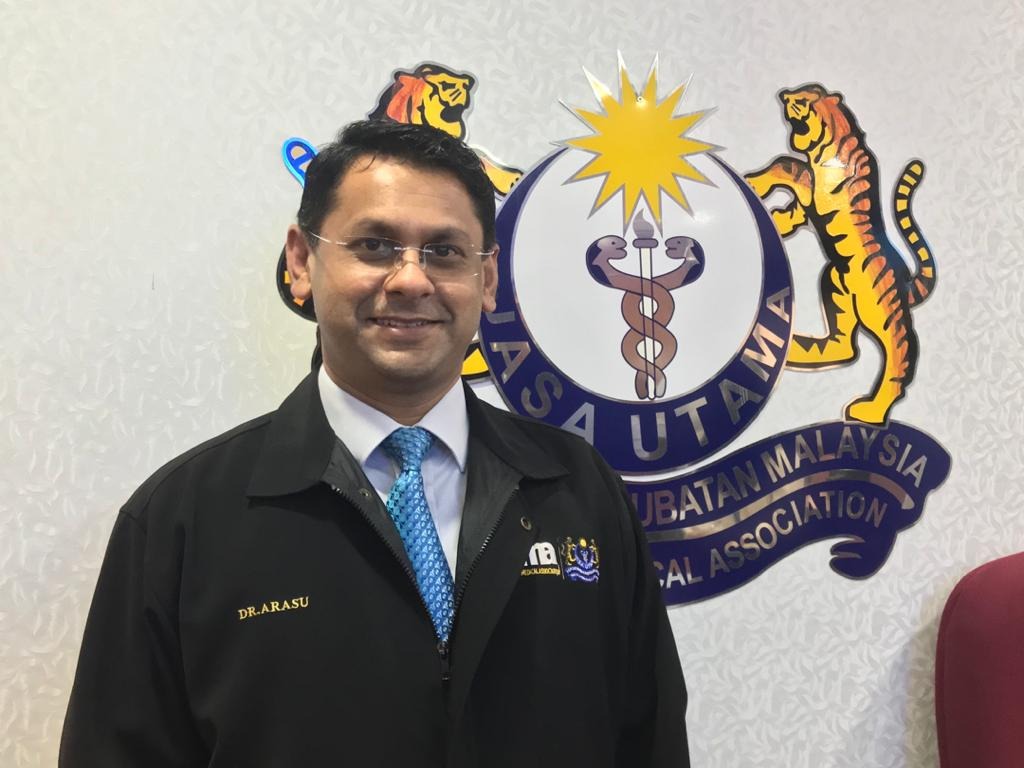
MMA honorary general secretary Dr R. Arasu also criticised the lack of worker testing guidelines for clinics, adding that he believed RT-PCR tests could be used if prices were competitive and borne by the government.
Serology-based antibody rapid tests that need to be conducted twice within a week could perhaps be used for surveillance purposes instead, he said, referring to identifying the spread of the coronavirus epidemic in the population.
“We hope for a definite policy decision with a clear understanding of SOP from relevant authorities, instead of making policy decisions without thinking about guidelines. This gaffe has caused so much confusion and anxiety to the whole country previously, when the Minister of International Trade and Industry announced it in April,” Dr Arasu told CodeBlue yesterday.
He said total private laboratory capacity for RT-PCR tests in Malaysia was estimated at about 9,000 tests a day. Documented foreign workers were estimated at about 2.3 million, with some 40 per cent in the Klang Valley.
“The rest are all over the country. It will be a nightmare in sample-taking and logistics,” Dr Arasu said.
“Even if they do 10,000 tests a day, collectively by all the private labs and hospitals listed in the MOH guideline, it will take 210 days, unless they are all doing rapid antigen test kits with biosafety cabinets and install additional RT-PCR that can run 96 samples at one go, with biosafety level 2 compliance ready in place,” he added. Biosafety cabinets could cost about RM20,000.
Other ministries, said Dr Arasu, should support MOH’s approach of focused, targeted testing, rather than each ministry issuing statements without understanding the complexity of testing implementation, practicality, and if it is worth the money spent.
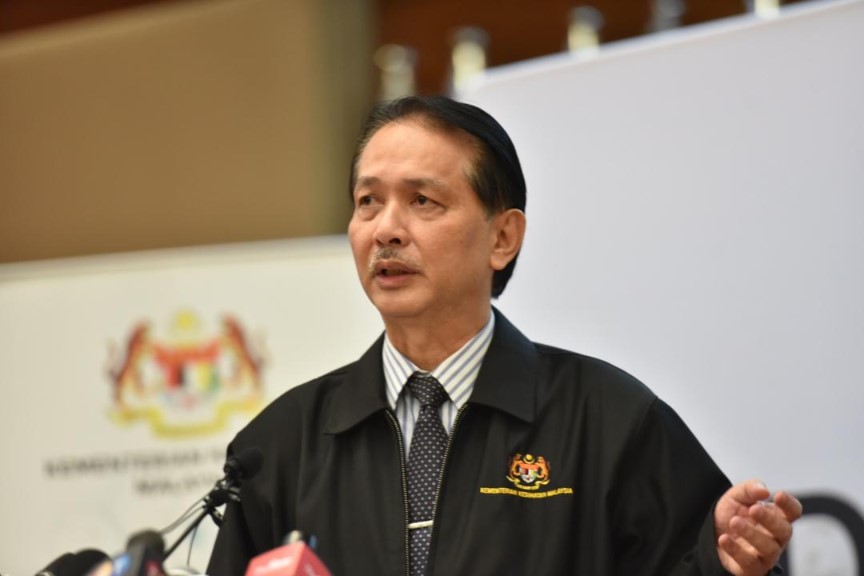
Health director-general Dr Noor Hisham Abdullah said MOH recommended the RT-PCR and antigen rapid test kits (RTK) as the first choice for testing migrant workers, as it enables health authorities to act immediately if test results are positive.
“The use of RTK antibody is the second choice as it requires two tests over a seven-day period, delaying immediate intervention measures, but the advantage is that it allows us a snapshot of the sero-epidemiology of the working population,” he told CodeBlue yesterday, referring to the spread of the Covid-19 epidemic among workers.
“We only use test kits that are evaluated by IMR (Institute of Medical Research) or MKAK (National Public Health Laboratory.”
Rapid antigen and antibody tests have minutes-long turnaround times that can be taken in clinics without needing to send samples to laboratories. Rapid antigen tests require the use of biosafety cabinets and can be used to detect active infections, or people who are currently infected with the coronavirus.
Antibody, or serology, tests require a simple pin-prick procedure to draw a drop of blood, but these can only identify people who were previously infected with Covid-19, not those who are currently infected, as the tests detect antibodies produced in response to the virus. According to veteran physician Dr Milton Lum, a worker testing negative for serology tests on both Day 1 and Day 7 may still have Covid-19 because the person’s antibody levels may not be sufficient enough to test positive on the seventh day.
The RT-PCR test is the gold-standard in testing for active coronavirus infection and to make a Covid-19 diagnosis, but samples are analysed in laboratories and can take between 24 and 48 hours for results.


